University of Minnesota faculty are frustrated with how administration handled the Morrill Hall occupation on Oct. 21.
President Rebecca Cunningham condemned the occupation at the University Senate meeting Oct. 25. She said the events were disruptive and harmful.
Some members of Students for a Democratic Society (SDS) and others occupied Morrill Hall to protest the University’s “neutrality” policy for divestment from Israel. Protesters barricaded entrances, spray-painted security cameras and broke interior windows.
University professor William Jones said he feels the administrative response may have been too harsh.
“The way in which the administration seems to be responding to protests with a heavy hand, I think that has the potential to create danger for everybody involved,” Jones said. “If you overreact, I think there’s the potential for heightening the danger.”
English professor V.V. Ganeshananthan said the students involved in the protest were mistreated.
“Students who protest are still our students,” Ganeshananthan said. “If we’re talking about security, it’s interesting whose security counts and whose doesn’t, because I think it is the administration’s responsibility to protect students, including students who are participating in protests.”
Several members of the Hubbard School of Journalism and Mass Communication school were unhappy with the treatment of student journalists during the coverage of Morrill Hall. Even so, Hubbard’s Director Elisia Cohen said that communication with the University police department and administrators was essential in helping smooth the process for all involved parties.
The confusion of officers during the occupation led to the detainment of Minnesota Daily reporter Tyler Church and other difficulties for student journalists who were covering the protest.
Cohen said the school would be happy to work with officers to ensure they are better equipped to handle journalist interactions.
“The journalism school, and specifically the Center for the Study of Media Law and Ethics, would be happy to be a support for any training,” Cohen said.
Ganeshananthan and Jones said the University should be careful in their response to campus protests so students’ civil liberties are not violated.
“I don’t think anybody is saying that the University shouldn’t have responded,” Jones said. “But the way in which you respond, especially in a situation like this, has to be conducted very carefully in ways that don’t violate civil liberties and don’t escalate.”
There were University and Minnesota police officers and Minnesota State troopers at the Morrill Hall occupation.
Ganeshananthan said the amount of security was alarming.
“An administration that is secure in its relationships with members of the campus community doesn’t need to respond like this,” Ganeshananthan said. “The first reaction to protests should not be punitive, it should be to think about the students.”
University professor Nathaniel Mills said he was disappointed with the way protestors were described and how the administration released information about the situation.
“The administration’s narrative of what happened doesn’t seem to accord very neatly with evidence that SDS has provided,” Mills said. “In her statement, Cunningham’s framing of the issue did not match what SDS said had happened. We have videos of faculty and staff in Morrill Hall leaving.”
Ganeshananthan said there is a long tradition of Morrill Hall occupations, citing the 1969 occupation.
“Protest is going to produce some measure of discomfort,” Ganeshananthan said. “That’s kind of the point.”
Cohen said the most important part is everyone is kept safe, even in chaotic situations like the occupation.
This is not the first time the school and its students have seen major protests on campus. Calling back to times of civil unrest during the Geoge Floyd protests, Cohen said she has seen journalists and police officers have conflict before, but she does not want that to change the school’s relationship with University police officers.
“I rely, and others at this school rely, on the UMPD to show up at the school when we have a safety incident,” Cohen said. “So I want them to be well-trained, and I want them to feel supported and have a trusting relationship.”
Cohen said that is important for both the University and the journalists that study here. She said she believes University police officers are here for the students.
“I have no reason to believe that they don’t care about the same issues,” Cohen said. “The reason why most of the officers choose to work at the University of Minnesota, compared to anywhere else in the state — and I’m sure there’s plenty of good jobs — is that I think they probably do like being on campus, working with young people.”
Jones said the administration needs to communicate better to members of its community and the public.
“I would hope that the administration would take seriously the concerns about escalation and militarization, and the chilling effect of their policies, to be able to respond to protests without making the situation worse,” Jones said. “And I think that’s the hope.”


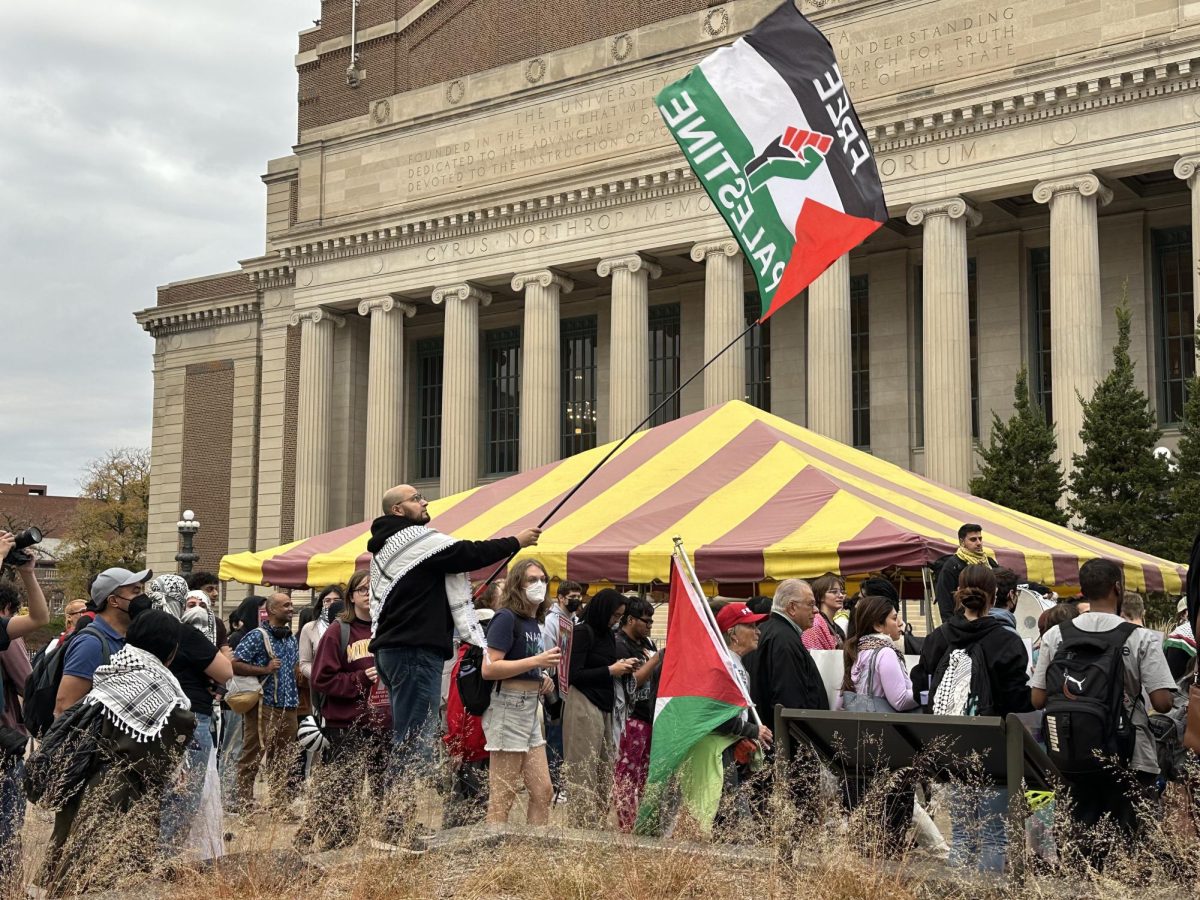
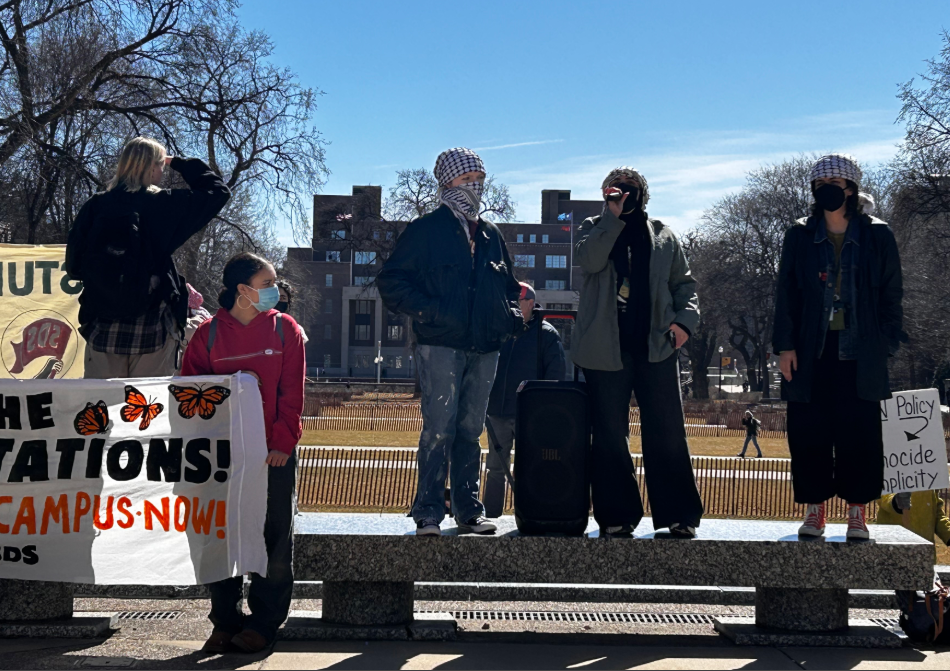

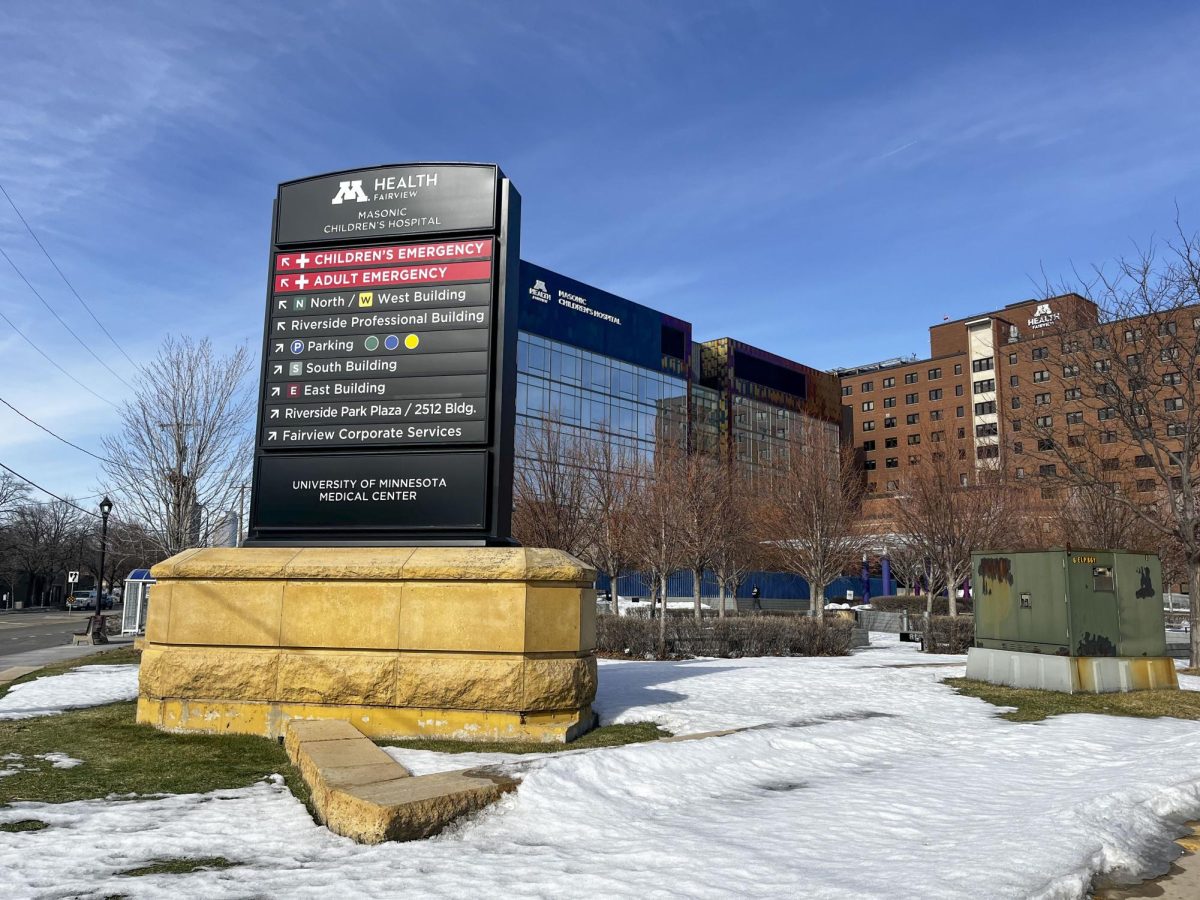
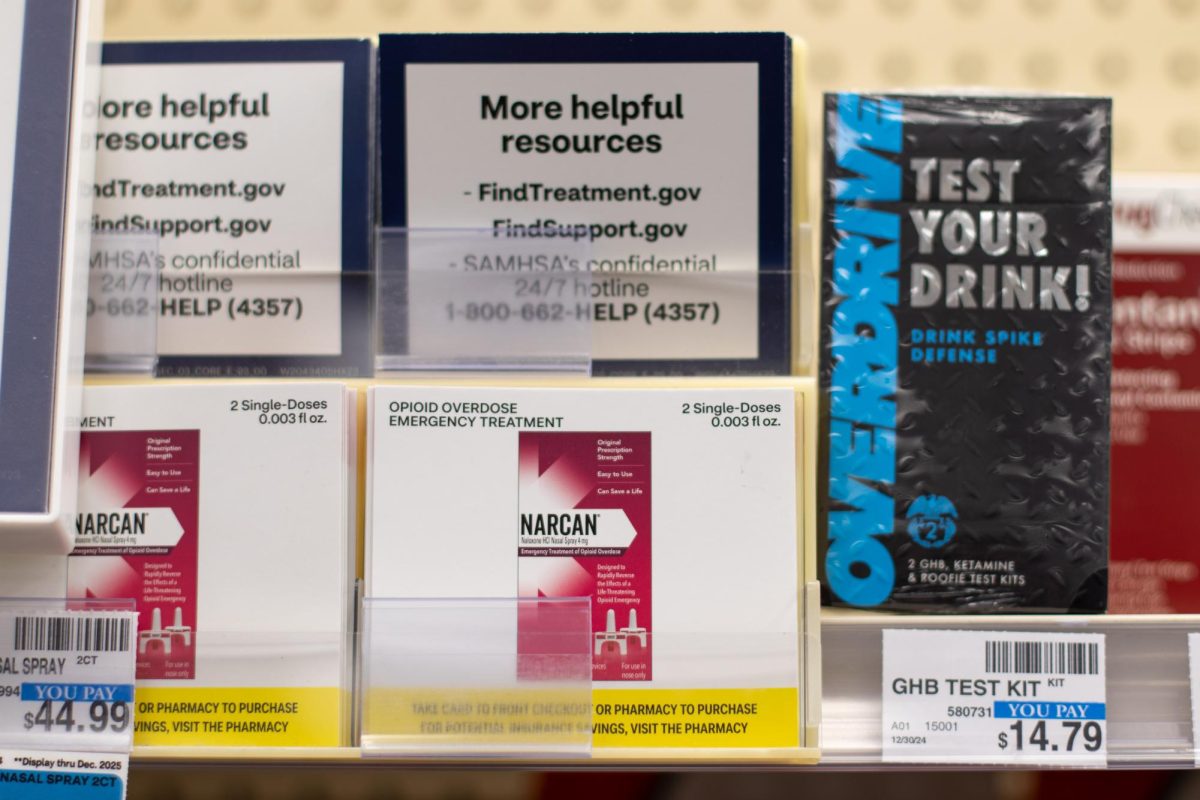
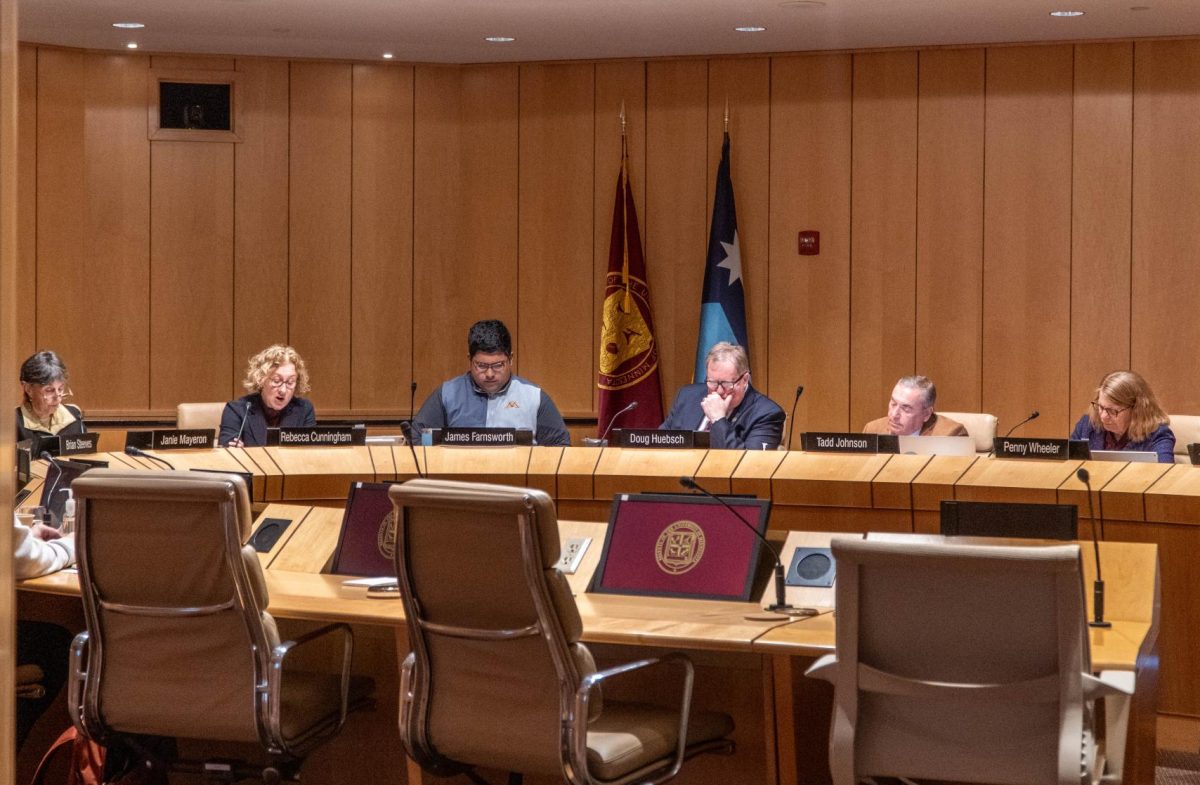
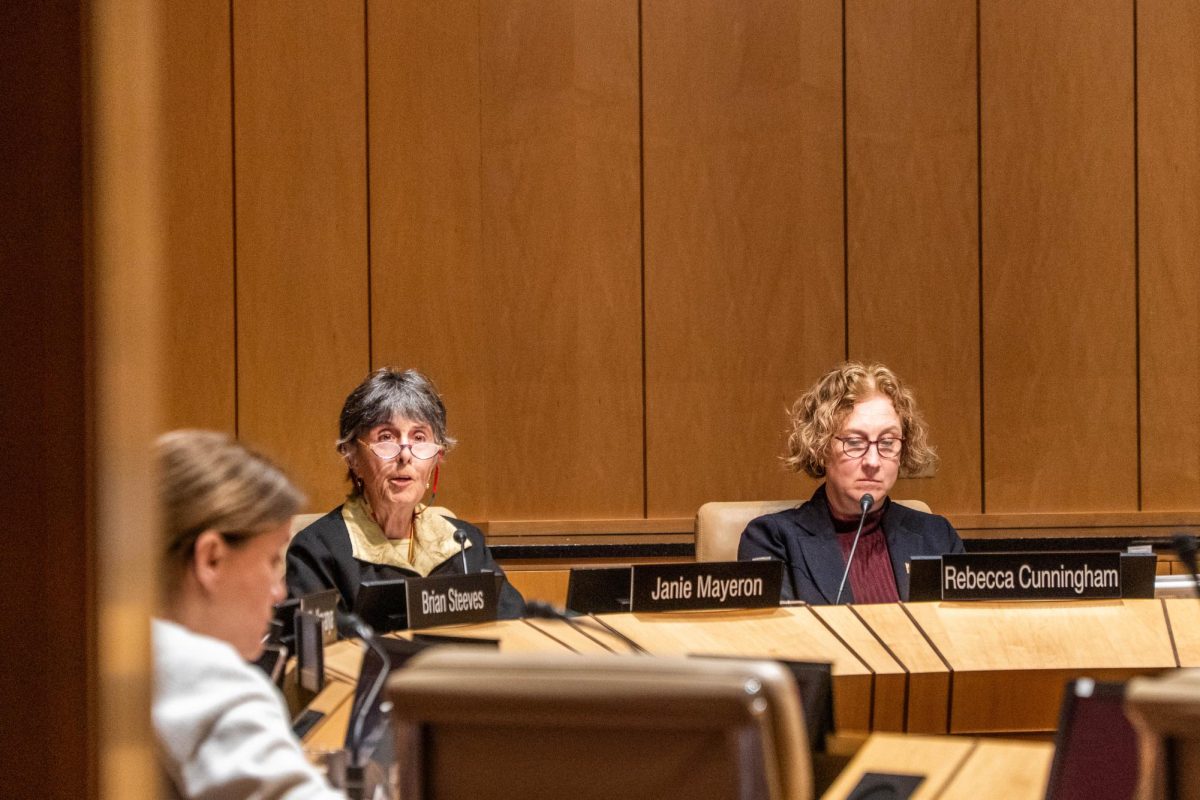
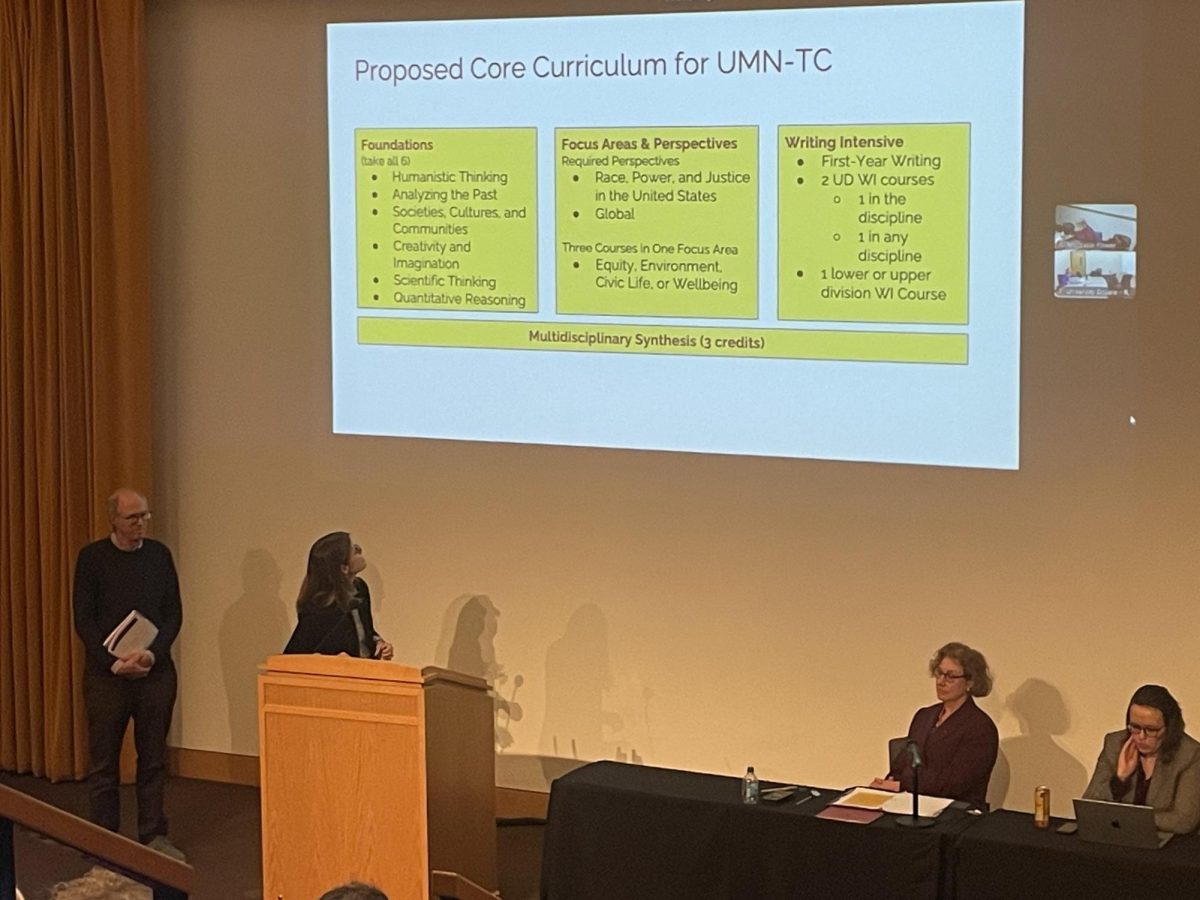
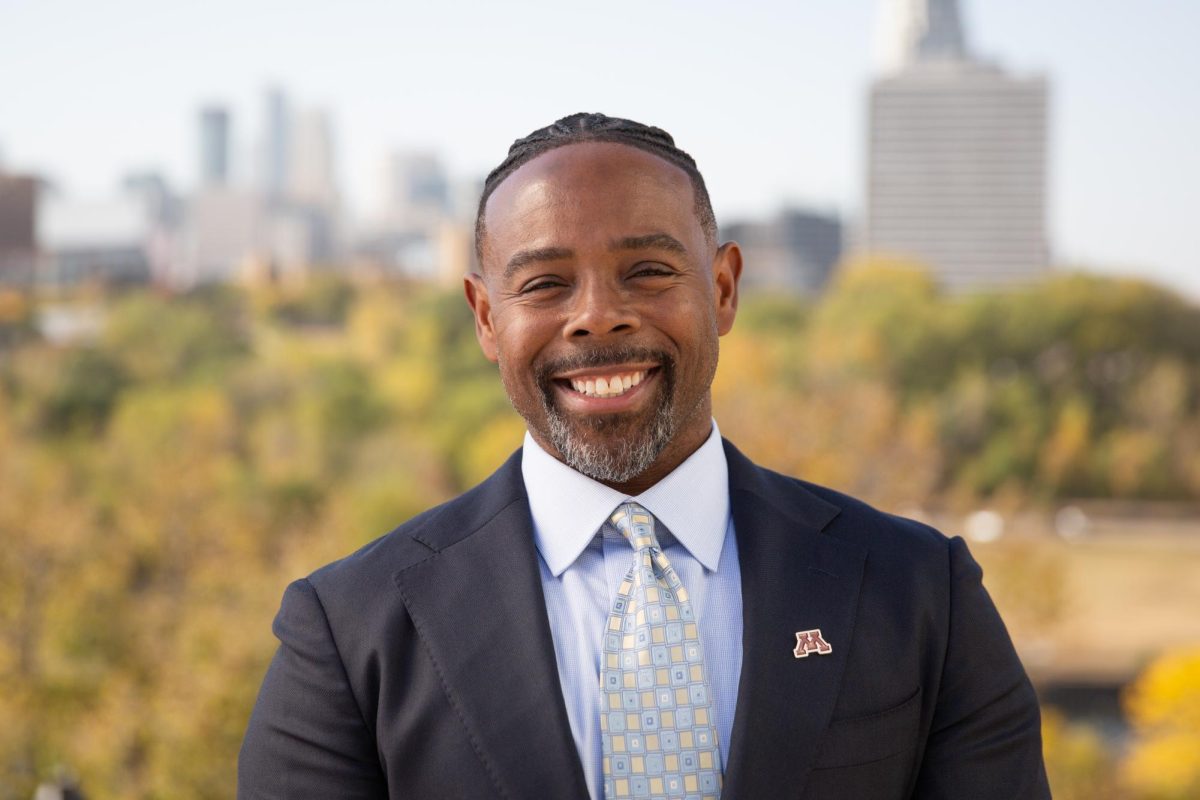
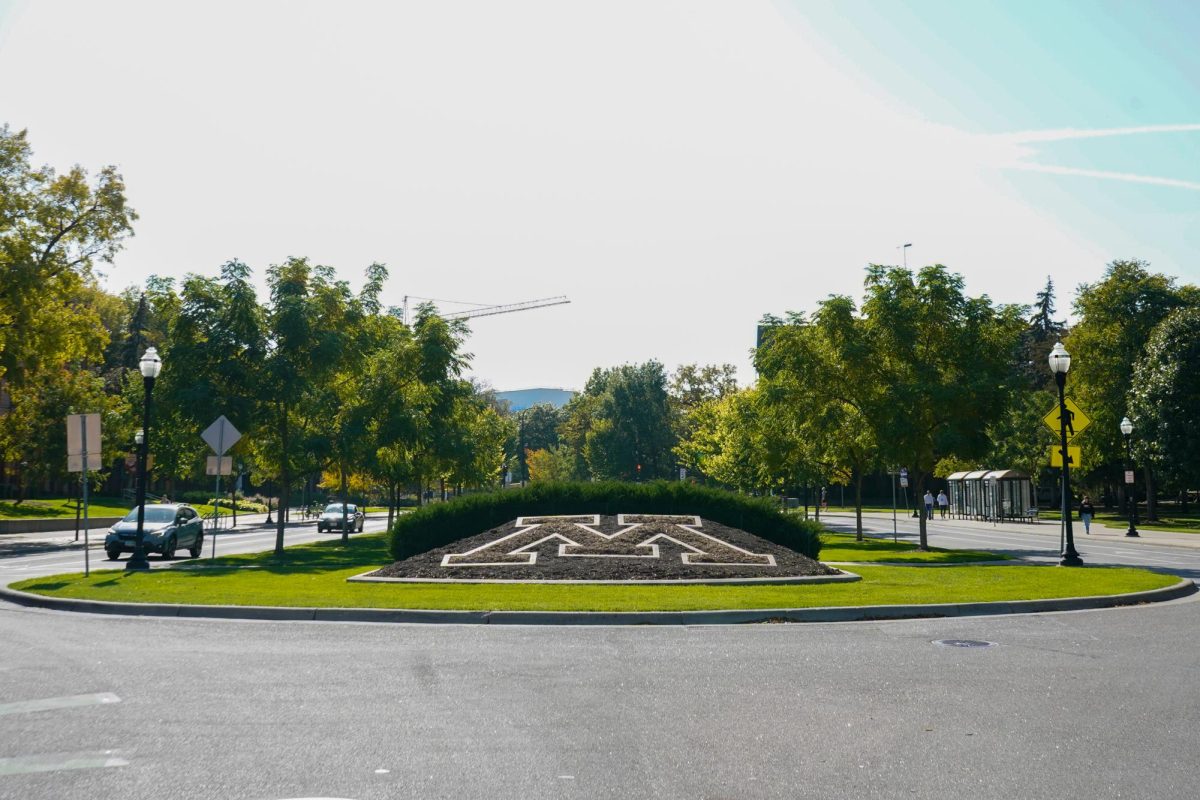
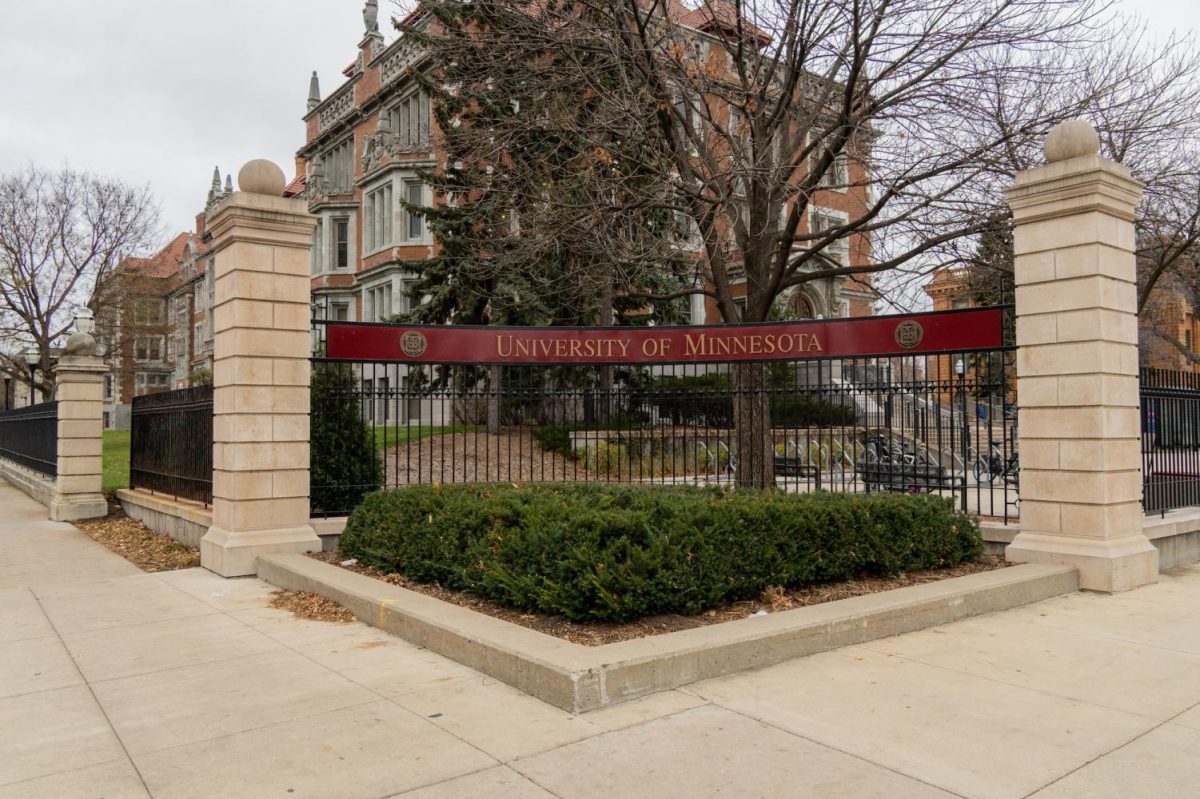
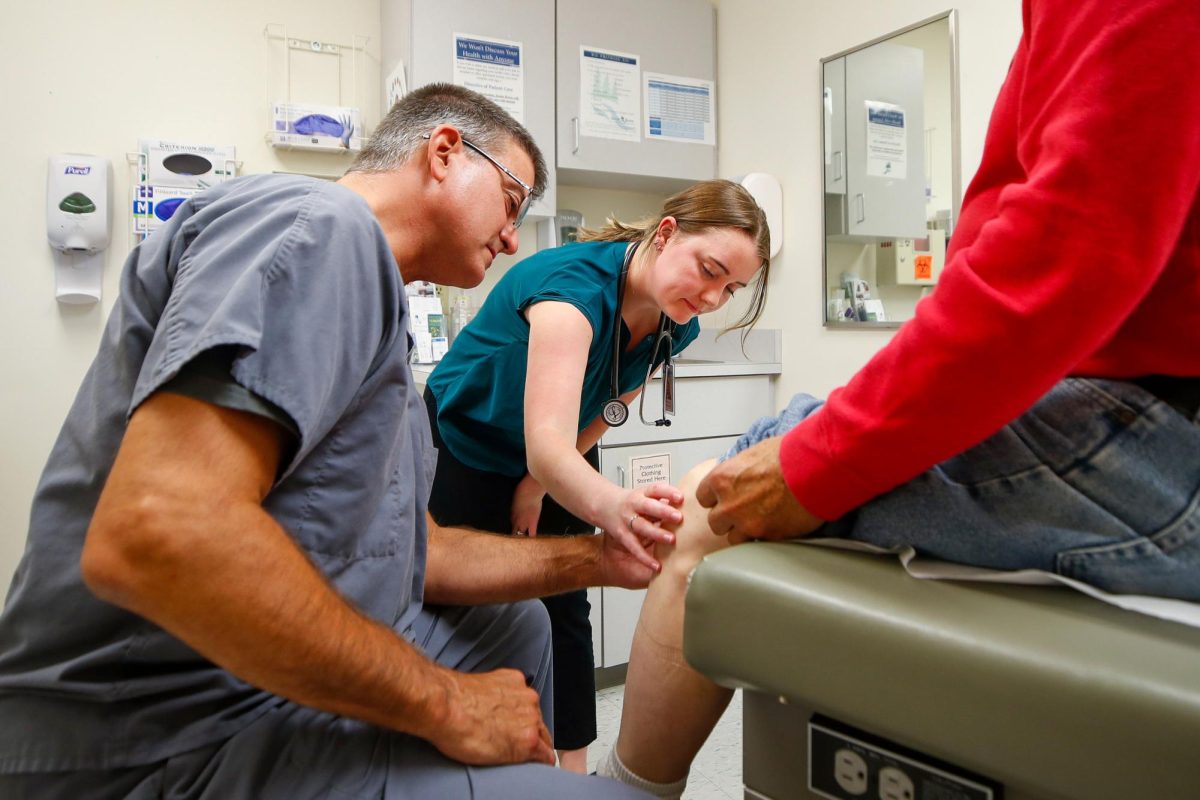
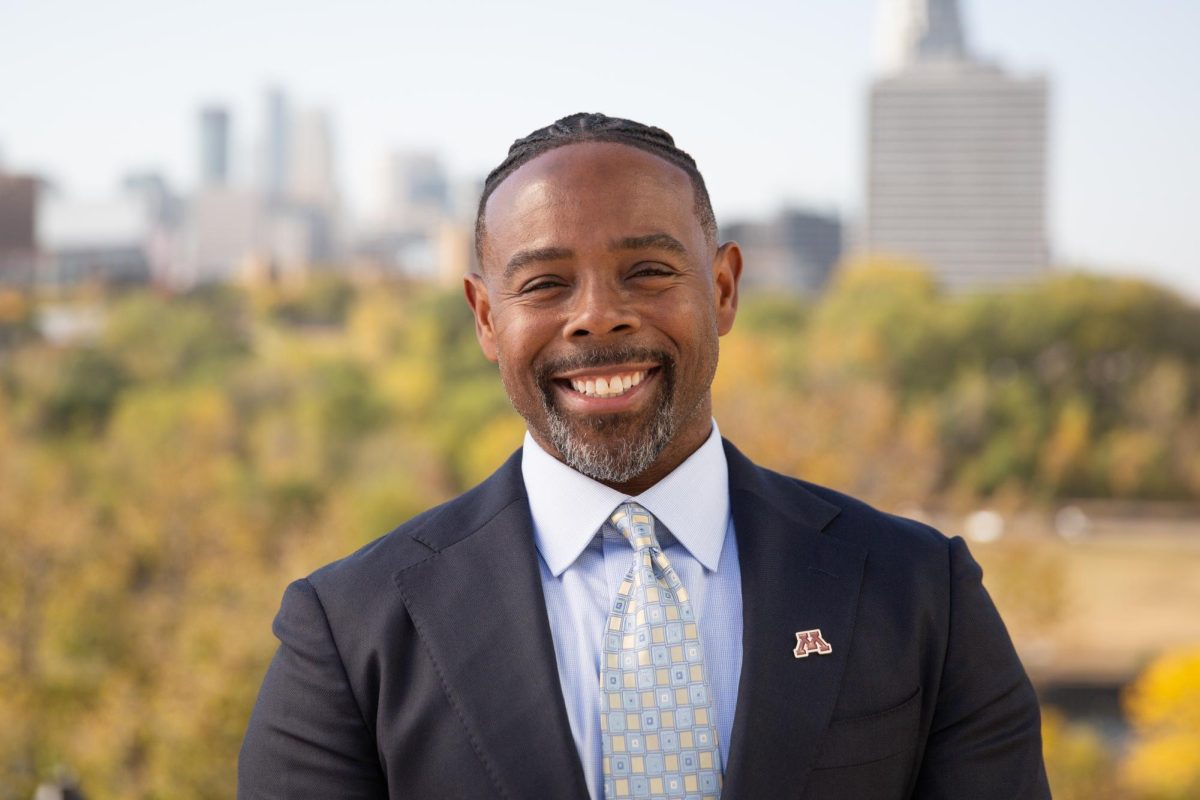
truestory
Nov 19, 2024 at 12:03 pm
I support the *cause* in both 1969 and 2024 cases. However, the current SDS strategy is alienating to me and many others who also support an immediate cease fire, release of all hostages, transparency and divestment. SDS appears to be woefully unorganized to the point people they might not want involved in their actions show up and do things I don’t believe any current student would do – damage property like we see in the photos. It’s not a fantasy that saboteurs might be showing up and doing things to intentionally harm and malign SDS’s actions – such things are quite common among student protests around the world. I’m not assuming SDS folks are unaware of the 1969 occupation but it’s obvious to anyone observing that SDS does not have the same capacity to create a movement powerful enough to get the response they are seeking from Admin. That’s the only argument I’m making. SDS needs to change tactics if they want more people and more power for a free Palestine.
UMN Faculty Member
Nov 15, 2024 at 11:28 am
truestory: first, I would not assume SDS is unaware of the events of the 1969. But I don’t understand what you see as their departure from the 1969 takeover. There was no “violence” on 10-21, apart from some windows being broken. Property was also damaged by student activists in 1969 as well: a U report on the 1969 takeover covers it in detail.
In 1969 and 2004: no one was harmed, no violence was done. To paint fantasies of violent “saboteurs” of SDS is just not factual.
If you think the *cause* of the students on 10-24 was not a justified one, and the cause of students in 1969 was, that’s one thing. Then make that argument.
truestory
Nov 15, 2024 at 8:40 am
You’re right Faculty Member, the 1969 protest was one of the only great moments in UMN history. The recent protests calling for peace, transparency and divestment are no such thing.
Obviously the 1969 takeover was not polite, it was wonderfully disruptive and deeply impactful. It was also probably the only and last time Admin here ever met student demands so clearly and with such lasting effects.
The SDS group could learn a lot from researching what the students in 1969 did; many of the original activists are still around. It’s great that there are some faculty here that support students but it is not accurate to say what SDS is doing on campus is just like what the students in 1969 did, even if there was some destruction of Morrill Hall both times.
SDS appears to be a group of students with good thinking and good intentions but their lack of proper organization allows elements of sabotage in their group to intentionally ruin protests with violence or threats of violence. The violence gets pinned on students and then no one who supports their cause can fully support them. SDS needs to change tactics; what they’ve been doing so far is not working.
JG
Nov 14, 2024 at 9:16 pm
SDS terrorists deserve absolutely ZERO sympathy. They have intimidated, harassed, targeted, threatened, and assaulted Jewish and pro-Israel students since 10/7. They have repeatedly broken university policies with multiple warnings, and more importantly, they have trampled on the rights of numerous other university members, which should never be ok.
SDS finally got what was coming to them, and frankly, I hope full charges are pressed, and these students are expelled permanently, with marks on their records. free speech does not give you the right to terrorize others, through vandalism, threats, intimidation, entrapment, forceable removal, harassment, or assault!
Soon SDS will be another name on the list of antisemitic groups that we Jews outlasted.
AM YISRAEL CHAI!!!
– a Jewish student who has been targeted, harassed, and intimidated by these thugs multiple times
Woods Halley
Nov 14, 2024 at 8:11 pm
As events unfold during the fall semester, it is becoming evident that the new university administration under president Rebecca Cunningham is emerging as a very disappointly negative force, primarily concerned with public image and hardly at all with defending the institution against attacks on university values such as academic freedom and shared governance. The ad hoc intervention in the academic appointment process in the Segal case and the harsh over-response to the occupation of Morrill Hall are cases in point. With regard to shared governance and the overemphasis on image I note the recent announcement from the office of the president of the appointment of someone named Chris Gade as “Vice President for Communications”. The position appears to have been recently created and the appointee has experience in public relations but not in academia. The committee appointed to make the recommendation had 15 members of which exactly ONE is identified as a faculty member and there is just one student. The others are all low level administrators presumably beholden to the Cunningham administration for their jobs. There is no indication that the Faculty Senate or the University Senate were consulted at all about this entire process. Mr. Gade’s salary was not revealed in the announcement. Woods Halley physics department
UMN Faculty Member
Nov 14, 2024 at 5:33 pm
Contrary to truestory’s claims, the 1969 Morrill occupation did indeed cause property damage throughout the building. Students then also confronted staff and ordered them to leave the building (no staff were locked inside last month. That’s just misinformation). In 1969, out of self defense, students also were involved in a physical altercation with a white student trying to disrupt the occupation. These are all “peaceful protest” tactics and exactly what occupiers did last month. The 1969 takeover was a great moment in the U’s history: it was not some sort of non-disruptive or polite sit-in. In 1969, the occupation was also catalyzed by the administration’s refusal to meet student demands (for anti-racist initiatives), like last month’s was a response to the administration’s refusal to meet student demands (divestment from Israel).
truestory
Nov 14, 2024 at 4:10 pm
Let’s not dishonor the “long tradition of Morrill Hall occupations” by tacitly supporting people who break windows and lock others inside a building in the name of their cause. The original Morrill Hall occupation was a peaceful, powerful action that resulted in the creation of the ethnic studies departments at the U. Insight, inspiration and instruction is offered in Nerve Juice and the Ivory Tower Confrontation in Minnesota: True Story of the Morrill Hall Takeover.
D. Hejhal
Nov 14, 2024 at 2:46 pm
All well and good, but so is transparency. It was stated that lethal weapons were pointed at some occupiers & one MnDaily reporter
ostensibly to ensure compliance. May one be so bold to ask (skip the yada yada about ‘protocol’): what type; by which agencies’ officer(s); and was this necessary? This is important for knowing how UMPD fits in in this university community.
Steve Hauser
Nov 14, 2024 at 12:49 pm
When you willfully destroy university property and/or block paths of egress and /or intimidate university employees in their work spaces, you’ve gone over the line. I don’t think the University’s response was too heavy handed.
There’s plenty of room on Northrop Mall for protesting…
Cal
Nov 13, 2024 at 9:33 pm
Can liberal arts be any more ridiculous? A protest is not the same as vandalism and chaos.